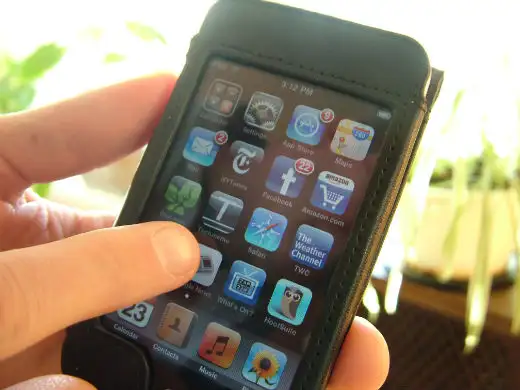Google published a large scale study of wireless search behaviour on Google Mobile Search in 2006 in collaboration with Columbia University and Carnegie Mellon University. The data set for the study consisted of over 1 million page view requests randomly sampled during a 1 month period in 2005. Only English Web searches were included in this study. To eliminate potential ‘bot’ spam traffic and confounding factors of network latency between different carriers, the study was restricted to a single large U.S. carrier. This article highlights some of the interesting findings from the study report.
Search Query Analysis
A search query is any combination of words, numbers and characters that a user enters into the search text box and then clicks on the ‘Search’ button. In common parlance it refers to the keywords or key phrases searched.
Number of words per query
For mobile users the average number of words per query is 2.3, with the majority of users searching two-word queries. This is very similar to the number of words per query for desktop Internet search, where the average number of words per query is 2.35 even though the amount of effort required to enter a query into a mobile phone is more than double that required to type it on a keyboard. PDA users on the other hand average 2.7 words per query with the majority of users searching three-word queries.
It is interesting to note that the average number of key presses per query was computed to be 30.7 on a typical triple-tap mobile phone.
Query categorization
17% of all mobile queries were found to be URLs, which indicates that not everyone uses their mobile phone just to search for services or products.
The most popular query categories for mobile and PDA users were as follows:
| Mobile | PDA | |||
|---|---|---|---|---|
| Category | % of all queries | Category | % of all queries | |
| Adult | >20% | Local services | >15% | |
| Entertainment | >10% | Entertainment | >5% | |
| Internet & Telecom | >5% | Computers & Technology | >5% | |
| Local services | >5% | Travel & Recreation | >5% | |
Query distribution
There is significant variation in the types of queries entered into mobile searches. However, there is significantly more variation in the types of queries entered into desktop Internet searches. The top 1000 mobile searches accounted for about 22% of all mobile searches, whereas the top 1000 desktop Internet searches account for only 6% of all desktop searches. This could be a reflection of the limited availability of mobile web services.
User Session Characteristics
A session is a series of queries by a single user made within a small range of time.
Queries per session
The average number of queries carried out per session for mobile and PDA searches was 1.6, with the majority of users stopping at 1 query. The average number for desktop search on the other hand is 2.02, with the majority of users carrying out at least 2 queries per session.
Search result click through rate
The click-through rate across all categories was consistently low, which suggests users rely heavily on Google snippets (web page description) in wireless search for their information. For those users who did click through, the number of clicks per query averaged 1.7, which is significantly lower than that for desktop Internet search.
Mobile users also spend more time on the search results page before clicking their first link, most likely to avoid paying for useless data and longer download times. The average time spent on the search results page before clicking on a search result was between 29 – 36 seconds.
PDA and mobile search users had 26.1% fewer sessions with at least one query than desktop searchers. Only 8.5% of mobile users and 3.5% of PDA users requested “more search results”, making the numbers significantly less than desktop users, where the average number of screens viewed per query is 1.3.
To read the paper in its entirety click on the link below:
www.esprockets.com/papers/kamvar-baluja.chi06.pdf
About the Author
Farhad is the Group CEO of AccuraCast. With over 20 years of experience in digital, Farhad is one of the leading technical marketing experts in the world. His specialities include digital strategy, international business, product marketing, measurement, marketing with data, technical SEO, and growth analytics.










